---------------------------------------------------------
Disclaimer: I am NOT a veterinarian, just an animal owner & lover sharing my opinions and experiences. Any advice on caring for animals or diagnosing & treating medical conditions for animals should be evaluated by a trained veterinarian. Whenever possible, you should always have your sick or injured bird evaluated & treated by a trained professional.
When you place your chick order online, most hatcheries will give you the option of adding vaccinations for your newly hatched babies. Quality local breeders will offer the same. What is the vaccination for and should you do it? Are there other vaccines that chicken keepers should consider?
The vaccinations offered to you will vary by hatchery & country. Marek’s Disease is the one most commonly offered by hatcheries in the US. The birds will come to you already vaccinated and you don’t need to do anything further. Other vaccines will need to be given by an avian veterinarian. You could also order vaccines yourself and administer to your flock. Vaccines & needles can be ordered at farm supply stores like Tractor Supply, or vet supply stores like Valley Vet. Meyer Hatchery also offers chicken vaccines for sale.

Marek’s Disease
Marek’s is a very common chicken disease. It is actually the #1 disease related killer among chickens and is prevalent in every country. Highly contagious, it will kill nearly all the birds infected and could leave the survivors blind or paralyzed. The survivors will also be carriers for the disease for the rest of their life. There is no treatment for Marek’s. All you can do is try to ease the symptoms (weight loss, paralysis, cloudy eyes, tumors) while waiting for the inevitable. Most vets would recommend euthanizing the animal, and possibly the entire flock, to avoid unnecessary suffering.
Thankfully, there is a vaccine that when given in the first 24 hours of life can prevent this disease in nearly all cases. I would highly recommend you add this vaccination for all your chicks.
Coccidiosis
Coccidiosis is another common infection among chickens, primarily infecting young chickens. Symptoms of coccidiosis include mucus or blood in the stools, anemia, stunted growth, unkempt feathers, and a stop to egg laying (in older birds). They pick the infection up by eating the poop of an infected chicken. Chickens also can spread it by stepping in infected poop. They step in it, they track it to the feed, they pick it off their feet when grooming. It can spread very quickly and the infection can remain viable in the stool for months. There are treatments available, and when caught in time, the bird may make a full recovery. But many do not.
The vaccination is unattenuated, which means it can often CAUSE the disease to manifest in the bird. Day old chicks often don’t do well with the vaccine. Most birds naturally build an immunity to coccidiosis as they get older. The vaccine is most often given to “teenage” birds whose bodies can handle the vaccination. It is often given if they are living where the infection is likely (like in factory egg farms).
Most backyard chicken keepers skip this vaccination, and instead use medicated feed to ward off coccidiosis. Medicated chick feed contains amprol, a medicine that can help their little bodies ward off the infection until they are old enough to build up their natural immunity.
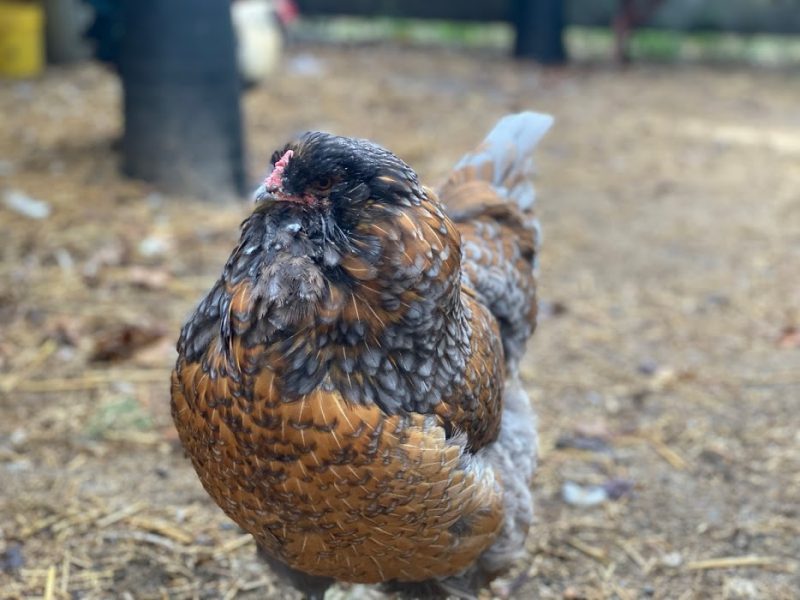
Newcastle & Infectious Bronchitis
Infectious Bronchitis is highly contagious among chickens (this strain is not transmittable to humans). Spread by contact with infected birds or infected equipment (like feeders, rakes, even your shoes if you visit a friend’s flock then walk into your chicken’s area). The symptoms include gasping, coughing, sneezing, drop in egg production, or low egg quality. Birds that survive will be carriers for life so could infect new birds added. Often the only way to eliminate the issue is to cull the flock, clean & sanitize the coop, and start over.
Newcastle Disease affects the respiratory, nervous, and digestive systems of poultry. Newcastle is spread in a similar way as Infectious Bronchitis – contact with infected birds or equipment. The range Newcastle can travel is much further. Symptoms include sneezing, nasal discharge, coughing, greenish watery stools, tremors, or paralysis. Many birds do not survive and Newcastle can wipe out an entire flock in a short amount of time. In 2019 and 2020 millions of birds needed to be culled in California in order to try and curb the spread of this disease.
A vaccine is available for both Infectious Bronchitis and Newcastle Disease, and they are often combined into one vaccine. Chicks should be vaccinated at 14 days, then a second dose at 4 weeks, and again at 14 weeks. The vaccine is administered via their drinking water, or applied individually via drops in their nostril.
This vaccine is highly recommended for very large, commercial flocks but even in small backyard flocks it is not a bad idea. This is especially true if you live in close proximity to other backyard chicken keepers or large commercial operations, or in Asia, Africa, or South America where both diseases are endemic.
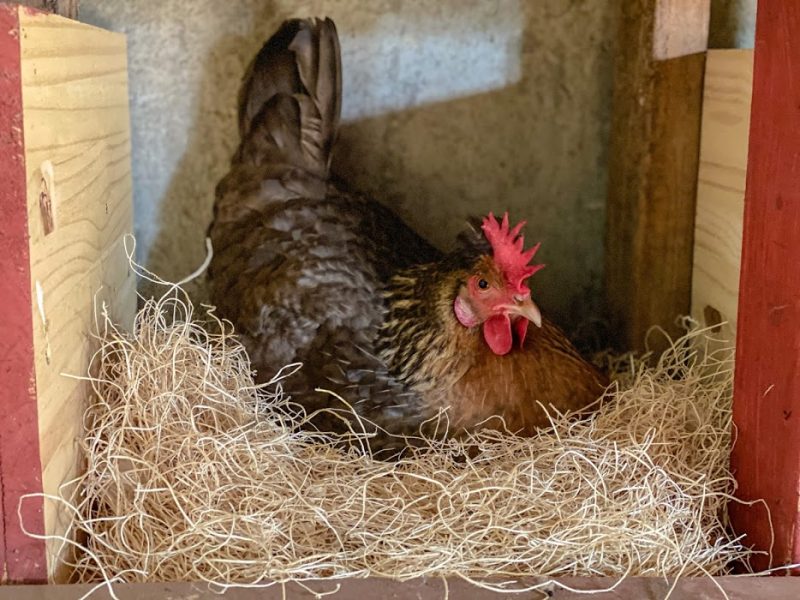
Fowl Pox
Fowl Pox can be spread to poultry by mosquitos and also by close contact with infected birds or infected equipment. The vaccine is typically given to chicks between 6 – 12 weeks of age via injection in the wing web area using a dual prong, grooved, needle.
Fowl Pox is slow to spread, but is contagious among chickens. Symptoms include lesions on exposed skin (comb, wattles, legs, feet), slow growth, and decline in egg production. It can also show up as lesions in the mouth, throat, eyes or nose in a “wet” fowl pox infection. There is currently no treatment for infected birds and up to 50% of birds will not survive an infection.
This vaccination would be recommended for all large scale chicken farms, but backyard keepers might also consider this vaccine in areas where fowl pox are more common or when there are many chicken flocks nearby.

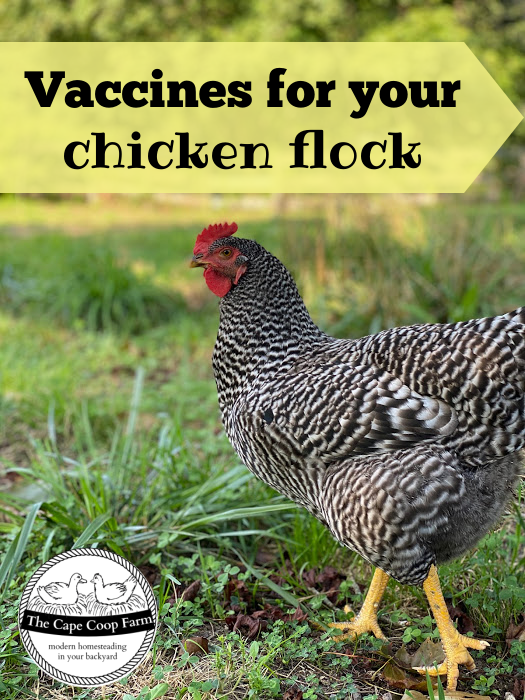




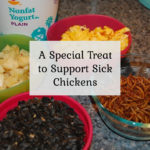
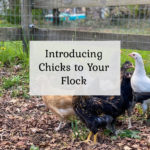
Adaer
Monday 19th of June 2023
Hi,I have been searching for fowl pox and other vaccines for my backyard chickens but I haven't found a single place that sell the vaccines. Can you please give a hint of where to find them here in Southwest Florida? I will really appreciate it. Thanks, Adaer.
Liz
Tuesday 20th of June 2023
Have you checked at ValleyVet.com? They have all kinds of poultry vaccines including fowl pox
Maria Villa
Monday 5th of April 2021
Thanks for sharing informative information. If anyone looking vaccination for chicken visit Proteon Pharma.
Linda
Tuesday 21st of September 2021
Where do I get chick vaccination